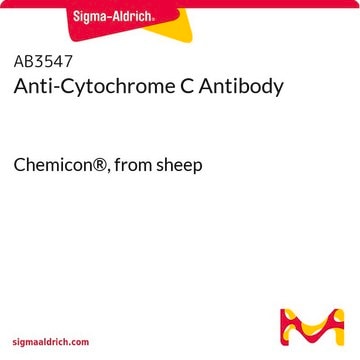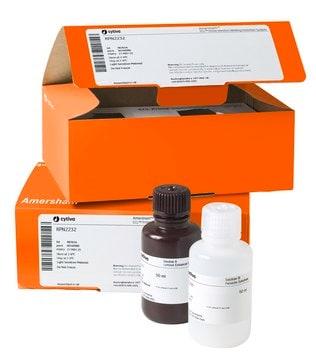05-673
Anti-phospho-Acetyl CoA Carboxylase (Ser79) Antibody, clone BK102
clone BK102, Upstate®, from mouse
About This Item
Productos recomendados
biological source
mouse
Quality Level
antibody form
purified immunoglobulin
antibody product type
primary antibodies
clone
BK102, monoclonal
species reactivity
rat, mouse
manufacturer/tradename
Upstate®
technique(s)
western blot: suitable
isotype
IgG1λ
UniProt accession no.
shipped in
wet ice
target post-translational modification
phosphorylation (pSer79)
Gene Information
mouse ... Acaca(107476)
Specificity
Immunogen
Application
Signaling
Insulin/Energy Signaling
Quality
Target description
Physical form
Storage and Stability
Analysis Note
Acid extracts of HeLa cells
Legal Information
Disclaimer
¿No encuentra el producto adecuado?
Pruebe nuestro Herramienta de selección de productos.
Storage Class
12 - Non Combustible Liquids
wgk_germany
WGK 1
flash_point_f
Not applicable
flash_point_c
Not applicable
Certificados de análisis (COA)
Busque Certificados de análisis (COA) introduciendo el número de lote del producto. Los números de lote se encuentran en la etiqueta del producto después de las palabras «Lot» o «Batch»
¿Ya tiene este producto?
Encuentre la documentación para los productos que ha comprado recientemente en la Biblioteca de documentos.
Nuestro equipo de científicos tiene experiencia en todas las áreas de investigación: Ciencias de la vida, Ciencia de los materiales, Síntesis química, Cromatografía, Analítica y muchas otras.
Póngase en contacto con el Servicio técnico








